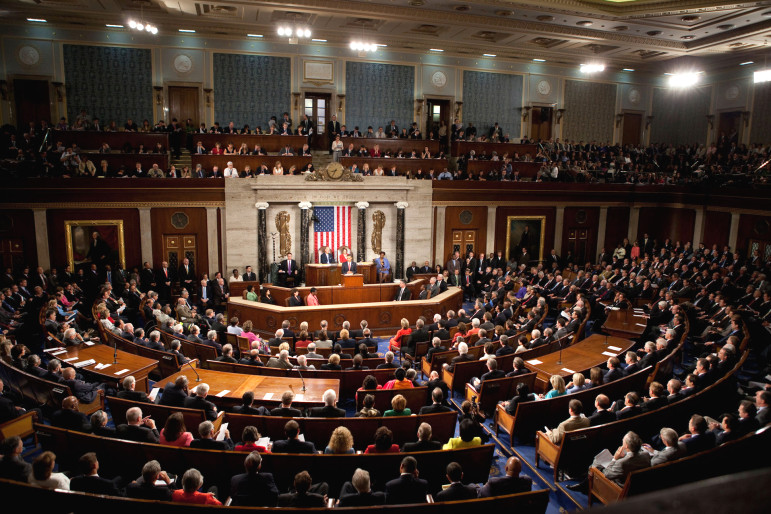
Lawrence Jackson / Official White House Photo
If the Senate passes the reauthorization of the JJDPA, other juvenile justice legislation could gather momentum in its wake.
WASHINGTON — When Congress returns from summer recess early next month, juvenile justice stakeholders will be watching to see what happens to a bill that would update core federal standards for the field.
The Juvenile Justice and Delinquency Prevention Reauthorization Act (S 1169) would make the first changes to the law since 2002 and is a top priority in the juvenile justice world. It cleared a key Senate committee in July and is headed to the Senate floor.
If the Senate passes the bill, other juvenile justice legislation could gather momentum in JJDPA’s wake, said Naomi Smoot, senior policy associate at the Coalition for Juvenile Justice.
Such reform-oriented legislation introduced in late July and August include bills that deal with solitary confinement, shackling, alternatives to incarceration and record expungement.
Smoot said juvenile justice reforms are a natural fit within broader bipartisan negotiations to reform the criminal justice system.
“Juvenile justice reform really is the first line in those criminal justice efforts,” she said.
Recent legislation
The bills introduced this summer include the MERCY Act (S 1965), which would prohibit solitary confinement for juveniles in the federal system or held in pretrial facilities and juvenile detention facilities.
Sen. Cory Booker, D-N.J., introduced the bipartisan legislation with Sens. Dick Durbin, D-Ill., Rand Paul, R-Ky., and Mike Lee, R-Utah.
“Not only is solitary confinement cruel and demeaning, it’s a violation of one’s human dignity. When imposed on adolescents, it can cause serious long-term psychological and physical harm,” Booker said in a statement.
[Related: House Bill Would Reauthorize the JJDPA]
The bill’s provisions are very similar to language included in the REDEEM Act (S 675/HR 1672), a broader Senate bill dealing with both the juvenile and criminal justice systems that Booker and Paul reintroduced earlier this year.
As a standalone bill, the MERCY Act could have a smoother path through Congress.
Rep. Tony Cardenas, D-Calif., also has introduced standalone legislation prohibiting solitary confinement (HR 2823).
In the House, top Democrats on the Judiciary Committee released a package of juvenile justice reforms in July.
Rep. John Conyers Jr., D-Mich., ranking member of the committee, and Sheila Jackson Lee, D-Texas, ranking member of the crime subcommittee, introduced:
- The RAISE Act (HR 3158), which includes alternatives to incarceration and sentencing reforms;
- The Fair Chance for Youth Act (HR 3156), which allows formerly incarcerated youth to request expungement of certain federal records; and
- The Effective and Humane Treatment of Youth Act (Kalief’s Law) (HR 3155), which aims to ensure young people’s right to a speedy trial and ban shackling and solitary.
Jackson Lee said in a statement that “meaningful criminal justice reform must look at all the ways the system touches the lives of our young people, recognize that they are different, and take steps to treat them appropriately and humanely.”
The leadership of the House Judiciary Committee said in early August that it would spend the recess crafting a bipartisan criminal justice reform initiative.
More stories related to this one:
House Proposal Would Eliminate Key JJDPA Funding
OP-ED: Sunshine Was Best Disinfectant at Senate Judiciary Hearing
what i would like to see
“incarcerated juveniles get a second chance in life”
abolish life w parole or without parole both of them are a sentance of death wich is cruel and unusual punishment of minors in a “civilized
country”
in
This is a great start. I would like to see the abolishing of juvenile lifers. Life with parole is no different than life without parole. When parole can be denied for the duration of confinement. There needs to be a adequate limit that both serves as punishment and also gives second chance.